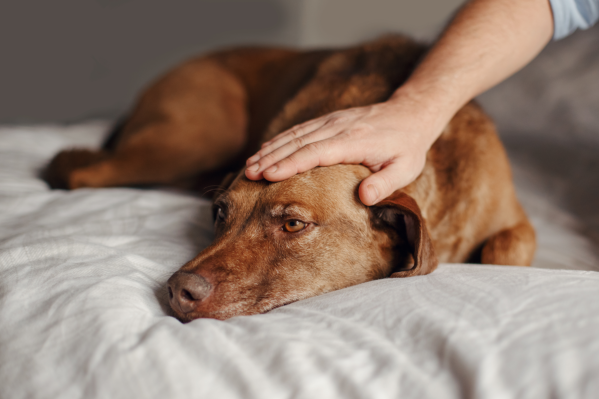An upper respiratory infection (URI), often also called kennel cough, is a common illness in dogs. Although the symptoms of the ailment can seem like a cold, it’s important to treat it early so it doesn’t develop into something more serious, like pneumonia.
Here is a complete rundown of everything you need to know about upper respiratory infections in dogs, including what the signs are, how your furry friend gets the condition, and what you can do to treat and reduce the risk of your pup getting sick.
Signs of upper respiratory infections in dogs
A common sign that your dog has an upper respiratory is when they hack a lot or have a dry-sounding cough. They may even cough or hack so much that they vomit.
Other symptoms of upper respiratory infections in dogs include:
Nasal discharge
Watery discharge from the eyes
Congestion
Sneezing
In addition to these symptoms, your dog may also have a decreased appetite and less energy than usual.
How do dogs get upper respiratory infections?
“The most common URIs are viral in origin, and dogs get infected from other dogs,” explains Dr. Yui Shapard, BVM&S, MRCVS and medical director at Pawp.
Dogs can get a URI from other pups directly through what Dr. Shapard describes as an “oral-nasal transmission,” where they lick or get too close to an infected dog’s nose or mouth or inhale viral particles from a sick dog’s cough or sneeze.
URIs can also spread indirectly, however, and even sharing the same blankets, toys, and food bowls can lead to the infection spreading to another pup. The condition, in other words, is highly transmittable, which is why you often see outbreaks at a kennel or doggy daycare.
URIs can also be fungal (especially in the Midwest region of the United States) or bacterial. Bacterial URIs, however, are usually a secondary infection for a pup who has a viral URI, which is why most common or mild infections don’t require antibiotics.
Once your dog has been exposed to the virus, bacteria, or fungus that causes upper respiratory infections, they’ll start to show symptoms within 2-10 days.
How to treat a dog with an upper respiratory infection
Vets often suggest treating the symptoms from a URI rather than the virus itself, as a dog’s natural immune response will be able to fight off the infection on its own.
If your dog is stuffed up, one way to make them feel better is to steam up the bathroom by running a hot shower and have them rest in there for 10 minutes to break down the mucus plugging their airways.
“In some cases, however, further medical intervention may be necessary, especially if their symptoms are not improving or appear to be worsening,” says Dr. Shapard. “Once their appetite goes down and they become lethargic, we may need to intervene with fluids, antibiotics, and further diagnostic tests to make sure secondary complications such as pneumonia do not occur.”
Dr. Shapard also added that fungal-based URIs can be much more serious than viral ones, so if you live in the Midwest where they most often occur, it may make sense to head to the vet sooner rather than later.
No matter what kind of URI your pup has, it’s very important to keep them away from other dogs, even those in your own home. Try to isolate them as much as you can to reduce the risk of your other furry friends getting sick as well. The good news is that most cases clear up on their own within a week to 10 days.
How to prevent upper respiratory infections in dogs
The good news is that there is a vaccine for dogs that will protect them from one of the most common upper respiratory infections. This vaccine—the Bordetella vaccine—is something that every dog should get, especially pups who go to doggy day care regularly, are boarded, or who are getting groomed. Some kennels, in fact, may require that your dog have this inoculation.
Another thing to keep in mind is to try to keep your pup away from other dogs who have the symptoms associated with URIs, such as a runny nose, coughing, and hacking. Nothing will be able to 100% prevent upper respiratory infections in dogs, but the good news is that with the proper care, your pup will soon recover and be back to their happy, healthy self.
If you think your dog may have an upper respiratory infection and aren't sure what to do next, the team at Pawp is here to help 24/7.

Reviewed and fact-checked by
Dr. Mari, DVM at Pawp
